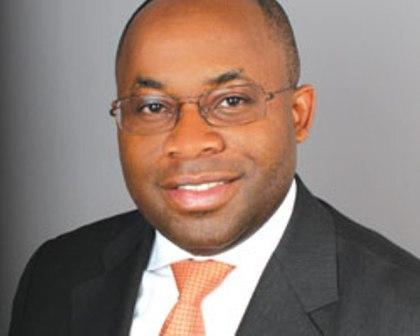che Orji, the Harvard-trained head of Nigeria’s sovereign wealth fund, said he’s worried about rising stock prices as he prepares to hand over the next tranche of the fund’s $1 billion of holdings to external fund managers.
“A lot of asset classes are richly valued frankly,” Orji, a former Goldman Sachs Inc (GS) banker and chief executive officer of the Abuja-based Nigerian Sovereign Investment Authority, said in an Sept. 5 interview. “There’s still a lot I’m not comfortable with in developed market equities. I’m not going to try and be a hero and catch a falling knife with people’s money.”
The Authority is seeking returns of 400 basis points above U.S. CPI in its $325 million future generations fund, one of three such pools created to manage the $1 billion, and plans to be fully invested by the middle of next year. It will weigh investments in about eight asset classes from private equity to developed and emerging-market stocks even as some securities gained on signs the global economic recovery is taking hold.
Orji said he’s working with Cambridge Associates LLC on filtering possible managers for the future fund after tapping former employers Goldman Sachs and UBS AG (UBSN), along withCredit Suisse Group AG (CSGN), to help manage a separate $200 million fixed income fund. That accounts for about 20 percent of the fund’s total portfolio and will start reporting performance next month.
Oil Prices
The wealth fund was signed into law in May 2011 by Nigerian President Goodluck Jonathan and started last October to invest savings made from the difference between budgeted oil pricesand actual market prices. A third pool is mandated to invest $325 million in infrastructure, with a further $150 million that can be allocated to any of the three investment groups, Orji said.
The infrastructure fund will invest in Nigeria and be internally managed because of a lack of local managers and is considering about 15 projects, said Orji. It’s targeting returns of 500 basis points above U.S. inflation and will probably announce “a couple” of investments by year’s end, he said.
The Dow Jones Industrial Average index has gained each year since 2009 and with Europe’s economy showing signs of recovery equity values may be set to rise further amid the possible paring of stimulus by the U.S. Federal Reserve, said Orji. Fed policy makers were “broadly comfortable” with Chairman Ben S. Bernanke’s plan to start cutting bond purchases later this year if the economy improves, minutes of their July meeting showed.
“Nobody knows what tapering is,” Orji said in London. “I don’t think anybody has seen this level of quantitative easing in history so we don’t even know how the market is going to act.”
Nigeria Governors
The central government is in talks with Nigeria’s state governors on future transfers and savings after the latter protested allocations to the wealth fund, Finance Minister Ngozi Okonjo-Iweala said July 2. The Nigerian federal government plans to step up contributions toward year’s-end and is targeting $5 billion for the wealth fund in the “medium-term,” she said.
Such an increase would put it on a par with Angola, Africa’s second largest oil producer, which announced a $5 billion sovereign wealth fund in October. That’s headed by Chairman Jose Filomeno dos Santos, the son of Angolan president Jose Eduardo dos Santos.
Growing the fund beyond the initial $1 billion “will not be easy and straightforward frankly, especially if you think that a country of 160 million people have competing needs for spending and you’re here fighting your corner,” said Orji.
Nigeria saves oil revenue above the benchmark budgeted price in the excess crude account, which held $5 billion Okonjo-Iweala said in May, down from $9.2 billion in January. It relies on crude exports for about 95 percent of its foreign-currency earnings and about 80 percent of government revenue.
Orji, who said he has personal relationships with other sovereign wealth funds from his time as an investment banker in Europe and the U.S., hopes to attract other sovereign wealth funds, such as those in the Middle East, to coinvest in Nigeria.
“We see ourselves as a conduit,” said Orji. “This is Nigeria, we deliver good returns, the pleasure is all theirs.”

